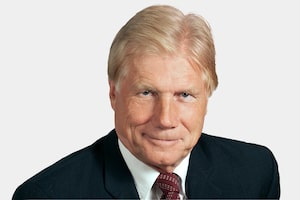The leaders of Canada's three largest provinces - all of them Liberal - have one thing in common: They're in trouble. Quebec's Jean Charest, tripped up by a bagman scandal, has seen his support numbers plummet since the last election. British Columbia's Gordon Campbell, undermined by the HST, is falling fast, and Ontario's Dalton McGuinty, while not in a big tumble, is hearing ominous sounds that he may be a dead man talking.
The three big-time Grits have another thing in common: They all have successful political records. They're multiple majority winners. They could walk away from the game right now and leave a respectable mark in the history books. But the allure of office being what it is, few should be surprised if they risk staying to fight another battle and end up leaving under the odour of defeat.
The caving of the three Liberal fortresses may have consequences beyond their jurisdictions. Tidings at the provincial level don't often reverberate with much impact at the federal level. But when the Liberal brand name takes a hit in three great domains in the same time frame, it surely can't help. It may be among the reasons why Michael Ignatieff is not getting much liftoff despite all his hard work through the summer.
In Ontario, Mr. McGuinty is already committed to entering his fourth campaign, the election being a year from now. He lost in 1999 to Mike Harris, then won majorities in 2003 and 2007. Those represent the first back-to-back majorities for Ontario Liberals since the 1930s. Recently, he's been met with a series of embarrassments. His stature in the job can hardly be said to be growing, and he's likely taken the party as far as he can. The province probably will opt for a new guy, if not out of any great keenness for Tory Leader Tim Hudak, then out of a desire for change.
Mr. Charest lost the Quebec election in 1998 despite winning the popular vote. He won a majority in 2003, a minority in 2007, and a majority again in 2008. Three wins in a row in Quebec is a special achievement. Four is very unlikely to happen. Mr. Charest is understandably perturbed at the turn of events. The scandal he faces results from a former Quebec justice minister's allegation that Mr. Charest told him to follow the advice of provincial party bagmen to name certain judges in the province. It's your basic patronage allegation and, even if true, hardly ranks high on the scandal metre.
If you were given a few bucks for every time, in the selection of judges, that political contributions played a role, you'd be one wealthy person. It's been common practice since Confederation. If there are candidates of comparable merit up for a judicial appointment, the one who'll get the nod is the one who's done the most for the party. What makes the Quebec case special is that a former justice minister is alleging it. Mr. Charest doesn't want to leave under such a cloud. He should fight the charge with a vengeance, wait for the waters to calm, then take his leave.
In a political arena as helter-skelter and as difficult as B.C.'s, Mr. Campbell has piled up three consecutive majorities - in 2001, 2005 and 2009. The first decade of the new century belonged to his Liberals even more so than Liberals in Ontario and Quebec. He was only re-elected last year, so still has time to recover from the HST blues; but given that he's been around so long, the odds aren't with him.
Federal Liberals can't quantify how much they're being hurt by the plight of their provincial leaders. They say Quebec is where it's being felt most. And they don't like the luckless irony of it all. Three of the most successful Liberal premiers to come along in decades are detrimental to their federal hopes.
 Lawrence Martin
Lawrence Martin